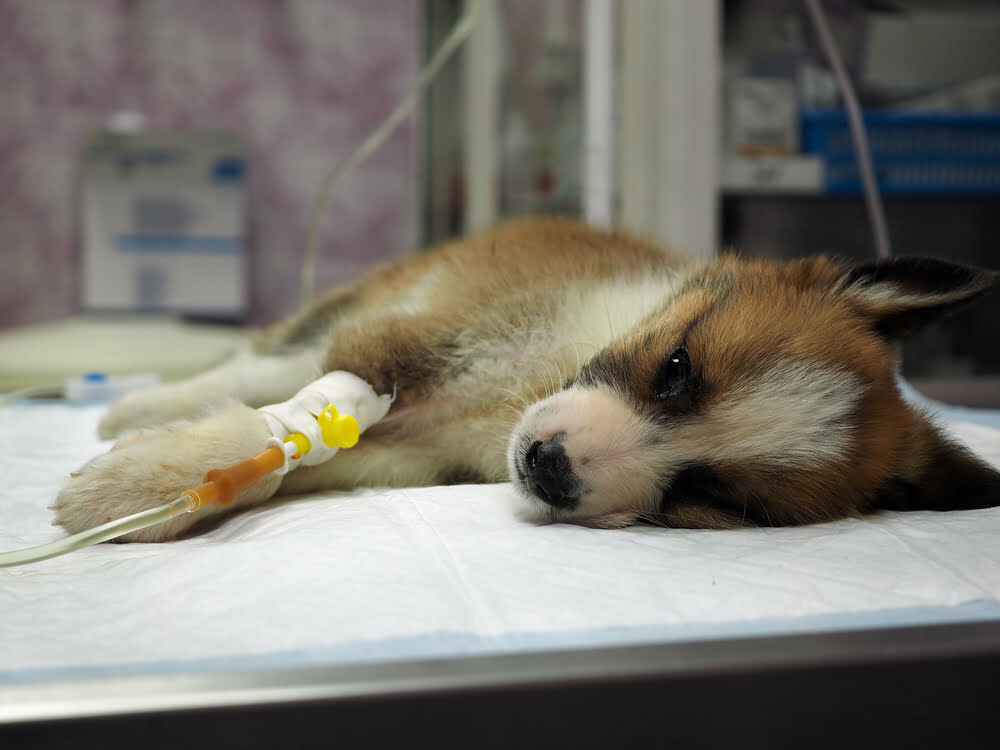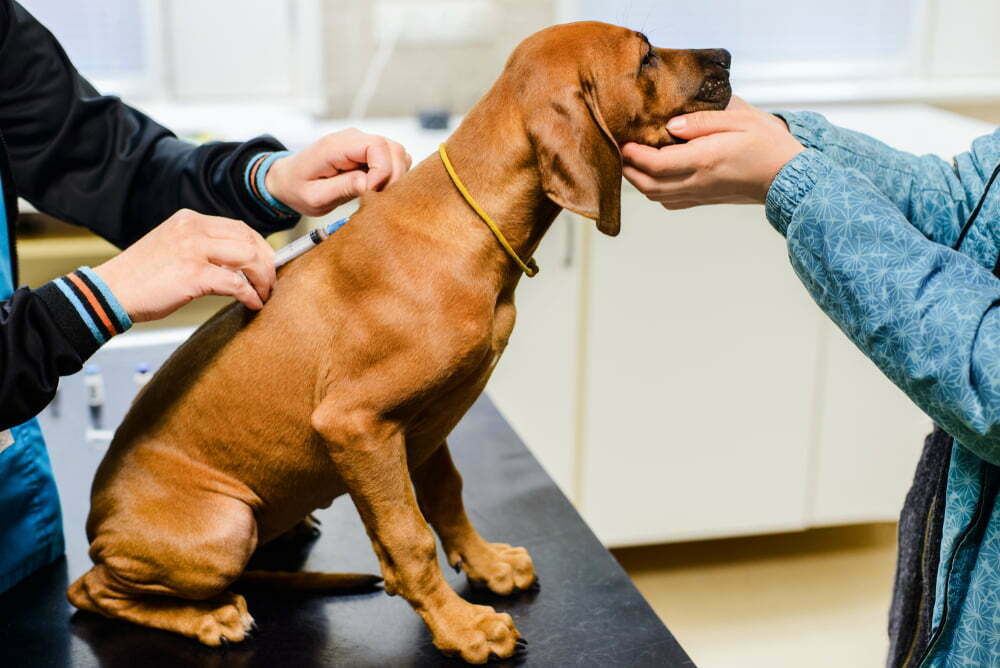Parvovirus is a highly contagious disease that can affect any dog, and it can also be fatal, which is why it is so important to be aware of it.

There are vaccinations that you can have for your dog that will reduce the chances of them getting it, but it does not offer 100% protection against the disease.
If your dog has already had parvo, you might be wondering if it is possible for them to get it again. Due to the fact that the disease is so awful, we can understand why this is something that you might be worried about.
We have done lots of research to find out if it is possible for your dog to get parvo more than once, so you can be prepared for anything that the future might bring.
In this article, we are going to look at parvo, the chances of reinfection, and how you might be able to prevent this from happening.
What Is Parvo?
Parvo is a contagious virus that causes an infection and gastrointestinal illness in both puppies and young dogs. Without treatment, this could be a deadly illness.
Something that makes this virus particularly dangerous is the fact that it can be spread quickly and easily through the canine population. The virus can spread through either contact with an infected dog or through feces.
An infected dog can start to shed the virus four to five days after they have been exposed to it. More often than not, the dog will spread the virus before they even show any signs of having it themselves.
The dog will keep shedding the virus while they are unwell and for up to 10 days after they have recovered from it. This is why accurate diagnosis and quarantine are so important for the health of your own dog and for other dogs.
Is it Possible for a Dog to Get Parvo More Than Once?
It is actually really unlikely for dogs to get parvo more than once or twice in a row, as they will build up an immunity to the disease after they have been infected with it.
Although, there is a theory that there is a small chance that a dog would be able to get parvo again if they were to be infected by a different strain mutation.
It is really unlikely for your dog to get parvo twice due to the fact that they will have built-up antibodies in their system after the first infection.
Once they have had it once, they will build up resistance to it, making them unlikely to get it again. However, canine parvovirus has lots of different strains. Just like any other contagious disease or virus, it can evolve and mutate into a different strain.
This is the reason why there will always be a small risk that your dog could get parvo more than once. However, this is really unlikely.
What Are the Symptoms of Parvo in Dogs?
It is important to be aware of the symptoms of parvo so that you can get an early diagnosis and ensure the safety of your own dogs and other people’s dogs. Some of the most common symptoms of parvo are:
- Severe, bloody diarrhea
- Lethargy
- Anorexia
- Fever
- Vomiting
- Weight loss
- Weakness
- Depression
- Dehydration
How Can I Stop My Dog From Getting Parvo Again?
Even though the chances of your dog getting parvo more than once are really slim, there are some things that you can do to lower their chances of getting it again even further.
It is really important to keep up to date with any vaccinations or booster shots. Puppies will usually get their shots in three rounds, which are at 8, 10, and 14 weeks.
Once your dog gets older, you will be able to protect them against parvo by ensuring that their boosters are given to them 1 year after they have been vaccinated and then once every 3 years. It is also important to limit your puppy’s exposure to any places where there might be unvaccinated dogs.
How Long is a Dog Immune From Parvo After Having it Once?
There is lots of conflicting evidence when it comes to the level of immunity that a dog will have after getting parvo. However, it is suggested that immunity can last for around 3 years, but it could possibly be even longer.

Does the Parvo Vaccination Work?
It is important to be aware of the fact that the parvo vaccine is not 100% effective, and it is still possible for your dog to get parvo, even if they have had their vaccine. Parvo has a survival rate of around 85%.
How to Prevent the Spread of Parvo
There is also some good news, which is that parvo is a preventable disease. However, it is worth being aware of the fact that vaccinated dogs are not 100% protected from the virus.
Vaccines are recommended for all puppies, but to prevent them from getting the disease, you will also need to ensure that they get their booster shots.
Unvaccinated puppies and incompletely vaccinated puppies should not be exposed to unvaccinated dogs or environments where there could be unvaccinated dogs. This means that you should avoid going for walks in parks and public places until your dog has had all of their vaccinations.
Otherwise, your dog will have no protection against the disease and will be constantly exposed to it on walks, increasing their chances of getting it.
Another thing to keep in mind is that even though socialization is really important for your dog’s training and development, it is really important to ensure that you are socializing your dog in a safe environment.
A puppy should also never be put in training classes with other dogs until they have had all of their vaccinations.
If you think that your dog might have parvo, you should contact a vet immediately. Early diagnosis will lessen the risks of your dog passing it on to anyone else.
